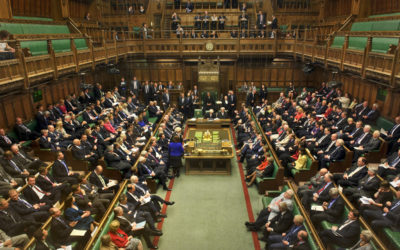Making the link with child development
ForcesWatch Comment
Are 16 and 17 year olds developmentally mature enough to make rational decisions about enlisting and once they have joined? The Chair of Neurology at the University of Pennsylvania says: 16 years olds “may be more prone to being stressed, to maybe malfunctioning under stress and also not using more rational a decision making approach when they are in that split second.”
As we report elsewhere, this week has seen media coverage and discussions on the age of recruitment to the UK armed forces, sparked by the open letter to the MoD signed by 20 childrens rights organisations. The letter noted how the youngest recruits are ‘actively sought’ for frontline roles and that, “Since the mental health effects of childhood adversity can be aggravated in a military environment, the effects of enlisting too early can be particularly harmful for some young people.”
The BBC and others covered the story in several places including this Radio 5 Live panel discussion (from 2 hours: 41 minutes) which had an interview with Dr Frances Jenson, a brain development specialist and Chair of Neurology at the University of Pennsylvania (author of The Teenage Brain and this TED talk) whose work focuses on the differences between the adult and teenage brain. She said:
“It turns out that the brain is the last organ in the body to develop, and it takes until the mid to late 20s to finalise itself. And the period between 13 and 20 is a very rapidly progressing developmental curve. So there are big changes between even 2 years, 16 and 18. Of course, it is not a mature brain at 18 either.
Presenter: what kinds of issues would a 16 year old not be able to deal with that an 18 year old would deal with better?
“One of the main differences that is occurring in this window of development is connection of the different parts of the brain to each other. It goes from the back of your brain to the front and that process to finalise the connectivity of the brain takes all the way through your teens into your mid to late 20s. The last place to connect is your frontal lobe, which is above your eyes, and is the part of the brain that controls executive function, impulse control, judgement, empathy, planning, risk-taking.
Presenter: that must be developed, so its just the speed of thought in those frontal areas?
“They do have a frontal lobe but the connections have to be insulated by a fatty substance called myelin, which takes a long time, so it is the speed of the connections. Once it is insulated, it goes much faster. So the split second decision making is relatively compromised in the teenager compared to the adult, on average.
Presenter: From what you know, is a 16 year old capable of taking that decision and carrying it through?
“The 16 year old is going to have less access to their frontal lobe telling them that this isn’t a good risk to take, this is an emotional decision that I am making rather than one that is rational. Their emotional areas are very attached at that point, in what we call the limbic system. In fact, they are more emotional than adults, when you look at things like functional imaging, functional MRI, when you look at parts of the brain that turn on with stressful experiences. The teenager had much more activity compared to the adult and its probably because they have more connectivity to their emotional areas than their frontal lobes at that point.
“So it would suggest that they may be more prone to being stressed, to maybe malfunctioning under stress and also not using more rational a decision making approach when they are in that split second.”
The presenter pointed out the incongruity between the age of recruitment, which suggests that 16 and 17 year olds are fully competent, and the special measures needed to protect young people in the armed forces.
Another guest, Lieutenant Colonel Johnny Blair-Tidewell, suggested that one of the key reasons for the policy continuing is that it was the ‘tradition’ of the army to recruit at 16. He presented a better case when he said that, “There is a need for something like the army to offer young people, who are perhaps not particularly interested in going down an academic route, of coming into the workforce…coming into a service where they can do something for their country.”
That young people could do with an economically viable alternative to academic education may well be the case. However, the price paid for the career and sense of service is often too high. Young people need to be encouraged to explore the full range of options, with the knowledge and critical awareness that maturity brings, before signing up to a very risky career.
See more: legislation & policy, recruitment age, child development
Like what you read?
> Sign up for our newsletter or blog notifications
> Support our work – from just £2 a month










